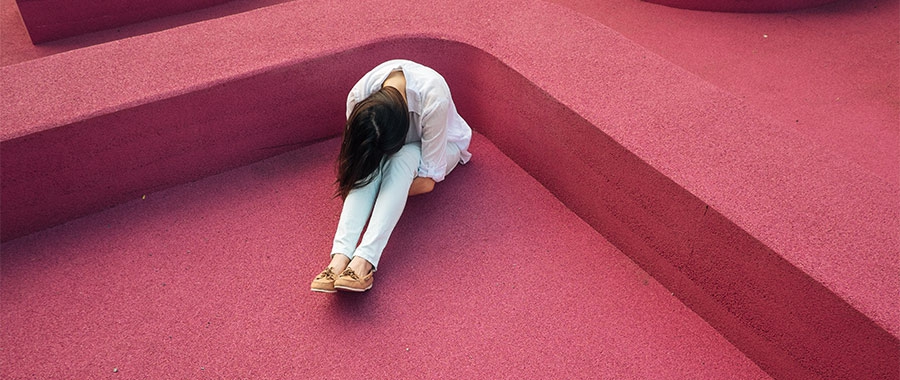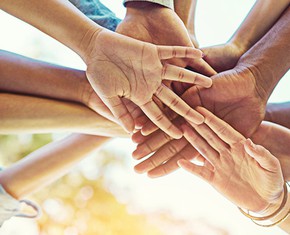The views expressed in our content reflect individual perspectives and do not represent the authoritative views of the Baha'i Faith.
Many of us know about the various forms of prejudice and discrimination based on race, gender, religion, national origin, disability, etc.—but few understand the term “lookism.”
Coined by the Washington Post Magazine in 1978, lookism refers to “… discriminatory treatment toward people considered physically ‘unattractive,’ mainly in the workplace but also in dating and other social settings.”
In other words, lookism means devaluing people who society considers physically undesirable—and overvaluing those considered “attractive.”
Lookism poses several serious issues, because we often define physical beauty with historical, cultural and hegemonic ideals. But those so-called “ideals” of beauty and physical attractiveness change over time, across cultures and even among different individuals. Beauty, then, really is in the eye of the beholder, rather than representing some universal, media-driven standard we can apply to everyone.
Research shows that this form of prejudice—the valuing of appearance over a person’s inner character—has become so prevalent in our technological world that “attractive” individuals receive greater attention and positive acknowledgment in social media, in the workplace and in relationships.
According to the American Psychological Association, though, studies on newborns have discovered that human infants as young as two months old prefer to look at “attractive” faces rather than unattractive ones. These findings demonstrate that lookism may represent an intrinsic aspect of humans’ visual system function, not learned behaviors such as racism, sexism, homophobia, etc. Therefore, this inherent, DNA-based form of prejudice may be even more difficult to identify and eliminate.
Psychologist Nancy Etcoff at Massachusetts General Hospital notes that: “Lookism is one of the most pervasive but denied prejudices.” Up until the 1970’s, lookism was a part of U.S. law, which included “ugly laws” barring people from appearing in public if they had diseases or disfigurements that were considered unsightly. Currently, there exists no federal law protecting individuals from this form of discrimination. Biased employment laws continue to endure, allowing employers to discriminate against a potential employee based on their appearance. A 2017 journal report from Utah State University found that physically attractive individuals were consistently chosen over less physically attractive individuals for job interviews and were more likely to be hired for job positions.
How do we remedy such prevalent prejudice and discrimination? The world’s religions shed light on this important issue—and on the true, lasting beauty inherent in all of us:
Abandon not the everlasting beauty for a beauty that must die, and set not your affections on this mortal world of dust. – Baha’u’llah, The Hidden Words, p. 26.
O Children of Men! Know ye not why We created you all from the same dust? That no one should exalt himself over the other. Ponder at all times in your hearts how ye were created. Since We have created you all from one same substance it is incumbent on you to be even as one soul, to walk with the same feet, eat with the same mouth and dwell in the same land, that from your inmost being, by your deeds and actions, the signs of oneness and the essence of detachment may be made manifest. Such is My counsel to you, O concourse of light! Heed ye this counsel that ye may obtain the fruit of holiness from the tree of wondrous glory. – Ibid., p. 20.
To examine the detrimental effects of lookism, just review the story of Joseph Merrick, also known as “The Elephant Man.” Due to his physical deformities, Merrick was exhibited as a side show act in 19th century London. He spent much of his life in misery, displayed as an oddity, beaten, ridiculed, and mistreated. It wasn’t until Dr. Fredrick Treves met and began studying Merrick that he discovered his kindness, intelligence, and gentle spirit. Merrick’s last days were spent in London Hospital with his dear friend Dr. Treves until his untimely death at age 27.
Joseph Merrick endured incomprehensible cruelty because of his physical appearance. This kind, humble gentleman was a light in this world, with a tenderness of spirit few individuals will ever attain. Joseph Merrick’s story reminds us to remember our humanity and to avoid lookism at all costs. Merrick’s heartbreaking tale can encourage us all to turn away from this “mortal world of dust” and enter the true reality of God’s Kingdom, where inner spiritual beauty lasts eternally and all physical attributes eventually fade away:
Your beauty should not come from outward adornment, such as elaborate hairstyles and the wearing of gold jewelry or fine clothes. Rather, it should be that of your inner self, the unfading beauty of a gentle and quiet spirit, which is of great worth in God’s sight. – Peter 3:3-4.
He made beautiful everything He created. – Quran 32:7.
Mortal charm shall fade away, roses shall give way to thorns, and beauty and youth shall live their day and be no more. But that which eternally endureth is the Beauty of the True One, for its splendour perisheth not and its glory lasteth for ever; its charm is all-powerful and its attraction infinite. – Abdu’l-Baha, Selections from the Writings of Abdu’l-Baha, p. 204)
The Baha’i Faith explores spiritual solutions to economic, social, and political issues like this one. Baha’is are encouraged to judge others on the “content of their character” as the great Dr. Martin Luther King Jr. said, not on their temporal level of physical attractiveness. This requires a reassessment of where our true value as human beings originates, and a renewed focus on the equality and diversity of humankind. Baha’u’llah advocated for the elimination of prejudice of any kind, and this includes lookism, the cause of many cultural and social ills plaguing humanity.
Those who seek a refuge from the world’s arbitrary standards of attractiveness can find it in the spiritual teachings of the world’s religions–including Baha’u’llah’s writings, which emphasize spiritual beauty as the only real beauty:
O Son of Man! Rejoice in the gladness of thine heart, that thou mayest be worthy to meet Me and to mirror forth My beauty. – Baha’u’llah, The Hidden Words, p. 36.
















Comments
Sign in or create an account
Continue with Googleor